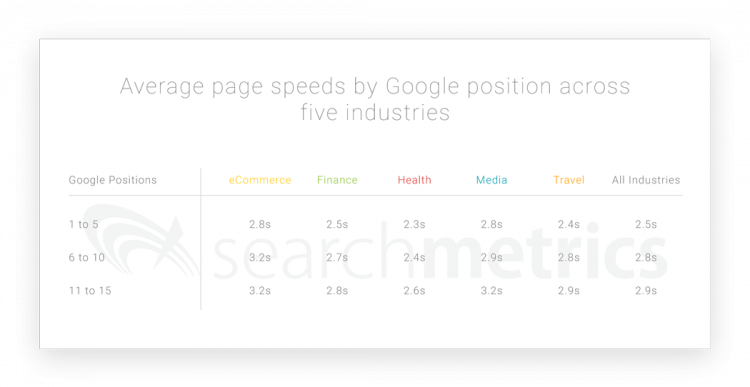Site speed first became a signal for search back in 2010 when Google announced that it was going to factor in how quickly a website loads into its search algorithm. This made sense: Users place a lot of importance on how fast a page loads and Google is obsessed with delivering good user experience. According to Google’s own estimate, this change was to affect less than 1% of the search queries, so most publishers didn’t have too much cause for worry. Moreover, the update only applied to desktop search. Now with the new speed update, that change applies to mobile web search as well.
Speeding up websites is important—not just to site owners, but to all Internet users. Faster sites create happy users and we’ve seen in our internal studies that when a site responds slowly, visitors spend less time there. But faster sites don’t just improve user experience; recent data shows that improving site speed also reduces operating costs. (source)
Speed = Higher Search Rank
Google launched the Accelerated Mobile Pages (“AMP”) project in 2016 with the objective of speeding up the mobile web by stripping away all the non-essential web page components. Even before the speed update came into play, the Mobile Speed Study 2018 by Searchmetrics revealed that faster web pages already rank higher on mobile. According to the study, web pages appearing between positions one to five on the search page were faster than those lower down, with almost 32% loading within one second.

The research suggests there is already some correlation between page speed and mobile rankings − and Google’s Speed Update is only going to make this stronger. So, webmasters need to be continually testing and finding ways to optimize their web pages for speed. Overall, this is going to mean plenty of work for many sites, as even in the top five positions 32% of search results took longer than three seconds to load.
— Cliff Edwards, Director Marketing & Communications of Searchmetrics
You Can’t Keep a Good AMP Down
The second noteworthy finding was related to the growth of AMP-enabled pages in search results. AMP pages appeared on the first page of search results for about 61% of all searches. And whenever AMP appears, on an average, 4.3 AMP-enabled pages were listed in the search results. Users may themselves prefer AMP-enabled pages as they load within a fraction of the time a typical web page would take.
The July 9th “Speed Update” from Google only confirmed this trend, Google is now using site speed as a signal for mobile web in addition to desktop. Both combined, any publisher still ignoring page load speeds will do so at their own peril and possibly risking deteriorating search rankings for their content.
“We encourage developers to think broadly about how performance affects a user’s experience of their page and to consider a variety of user experience metrics,” says Google. Although the update mentions that search intent is still a strong signal, and a web page that’s slower, but more relevant to the search query, will likely still rank higher in the search results—the risk is just not worth it.
So, What Should Publishers Do?
Speed update or not, if you haven’t already done it, make sure your web-pages are AMP-enabled, not only will this speed up your web pages and improve your search rank, but since AMP-enabled pages often get their own carousel on top of search results, it potentially offers a spot even better than being first on the search engine results page.
For some reason, if you’re not ready to run AMP yet, there are still ways to cut down the bulk and improve your page speed on the mobile web. Here’s a helpful guide from Think With Google that will help you benchmark your web pages against industry best practices with ideas about how to speed them up. Need a quick health check on your web pages? Run your site through PageSpeed Insights to find out your speed score and areas of improvement.

Shubham is a digital marketer with rich experience working in the advertisement technology industry. He has vast experience in the programmatic industry, driving business strategy and scaling functions including but not limited to growth and marketing, Operations, process optimization, and Sales.







